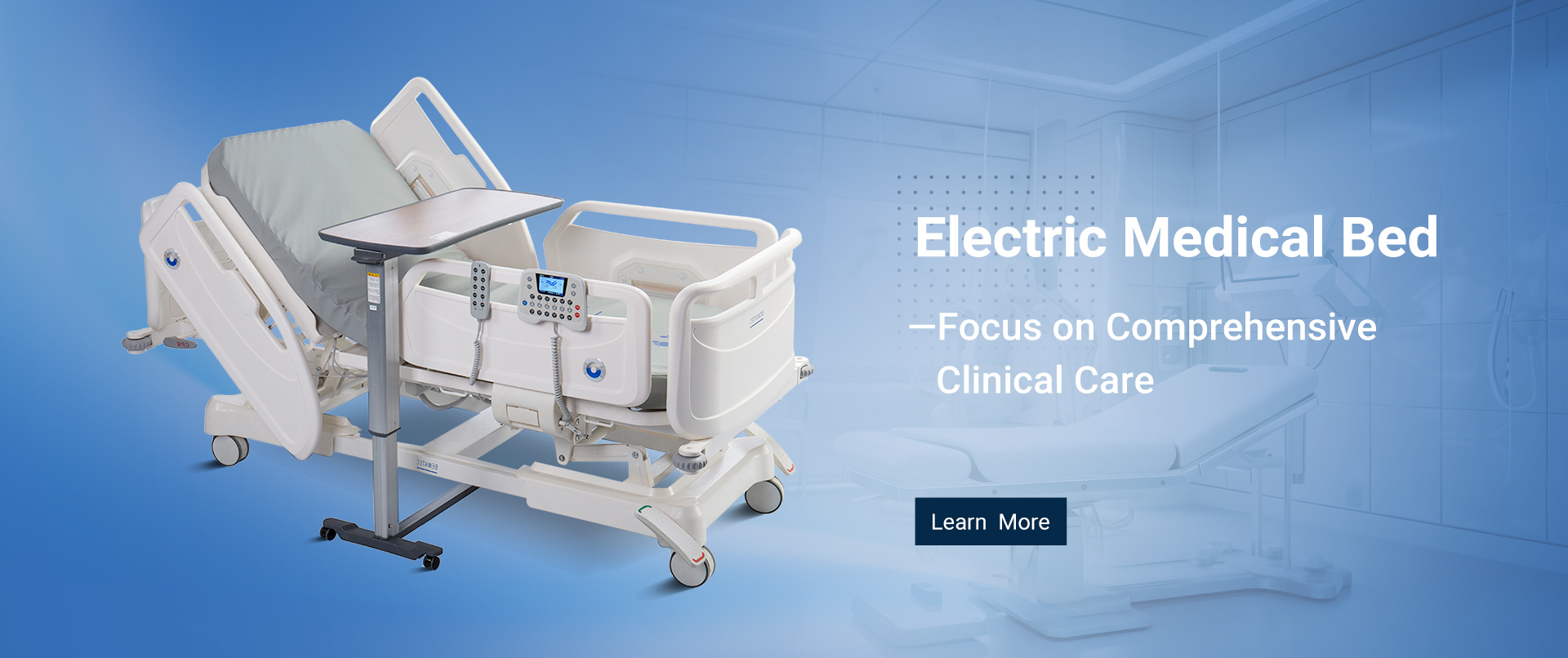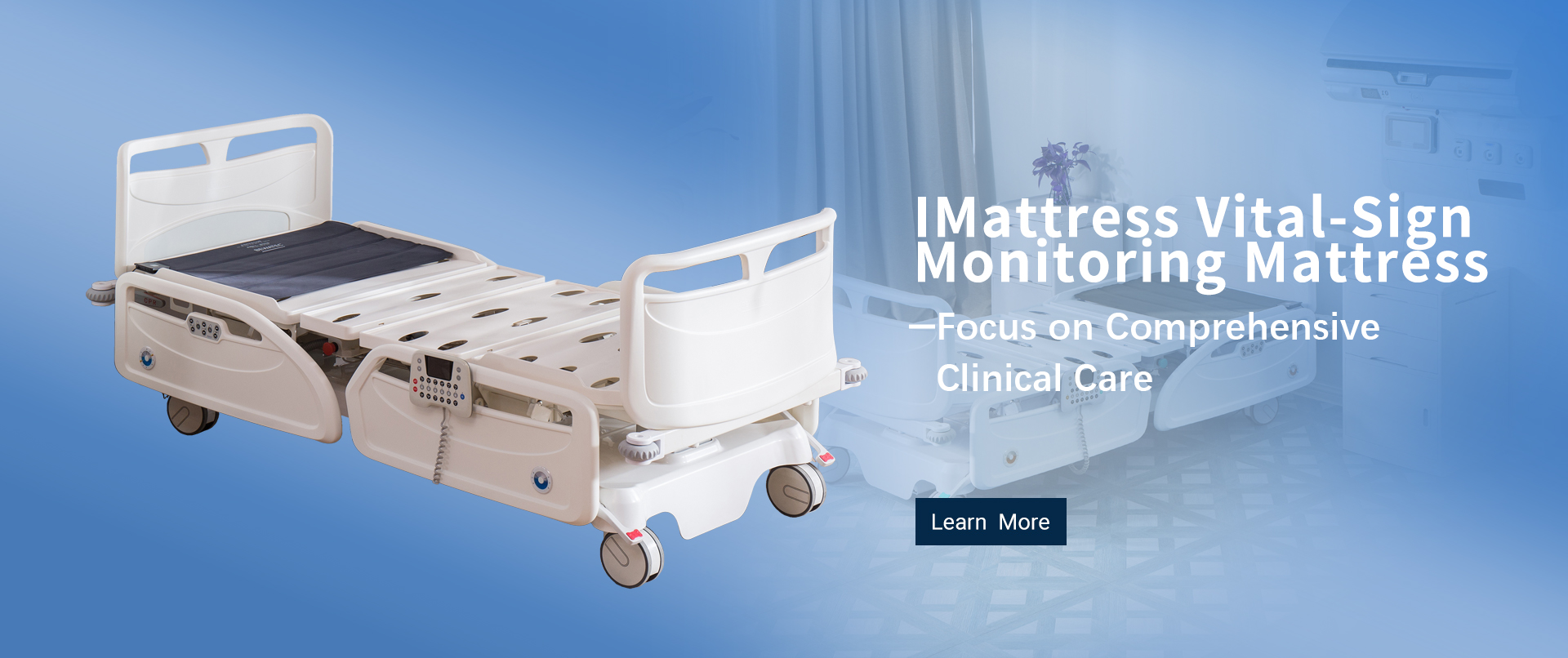
Mastering Best Personalized Care: A Comprehensive Guide to Meeting Global Procurement Standards
Table of Contents
- Understanding Global Procurement Standards in Healthcare
- Key Elements of Personalized Care in Procurement Strategies
- Effective Collaboration with Suppliers for Better Outcomes
- Technology Integration in Personalized Care Procurement
- Case Studies: Successful Implementation of Best Practices in Healthcare
- Measuring Success: Metrics for Personalized Care Procurement Strategies
- 2023 Sleep Foundation Report: Top Metrics for Selecting a Premium Mattress That Enhances Sleep Quality and Health
- FAQS
- Related Posts
You know, as healthcare keeps evolving, the push for Personalized Care is really picking up steam like never before! A recent report from Grand View Research predicts that the global personalized medicine market could hit a whopping $3.3 trillion by 2025. Pretty wild, right? This really shows how much we're shifting towards tailored healthcare solutions that fit people’s unique needs. Over at Bewatec (Zhejiang) Medical Device Co., Ltd., we're leading the charge in this exciting transformation. Our focus is on smart medical care, and we’re super committed to driving the digital overhaul in the global medical industry. By providing patients with journeys that are not just safe but also super comfortable and personalized, we're aiming to set some high standards in healthcare delivery. Plus, we want to be a leader in smart medical care solutions worldwide. In this blog, we’ll dive into the best practices for mastering Personalized Care while keeping in line with global procurement standards, so healthcare providers can really connect with today’s more discerning patients!

Understanding Global Procurement Standards in Healthcare
In the ever-changing world of healthcare procurement, it's super important to get a grip on global standards—this is key to keeping our supply chains running smoothly and sustainably. Take organizations like the WHO, for example. They’ve really stepped up to the plate, managing a whopping procurement budget of about $1.5 billion each year. This shows just how vital international groups are in setting the standards for procurement that don't just focus on quality and accessibility but also help our supply chains bounce back from any disruptions that might come their way.
Recently, we've seen initiatives like Indonesia's Health System Transformation Agenda push for more teamwork among all sorts of players to tackle urgent health issues. By taking a smart approach to sourcing, healthcare providers can not only align with these global standards but also boost local capabilities. And looking at something like China’s National Healthcare Security Administration diving into drug efficacy really highlights how crucial it is to have strict quality control to keep trust in our healthcare systems. With the way healthcare procurement is changing so rapidly, being on board with these standards is gonna be vital for sparking innovation and delivering care that’s actually personalized to meet the diverse needs of people around the world.
Mastering Best Personalized Care: A Comprehensive Guide to Meeting Global Procurement Standards
| Dimension | Description | Standard | Compliance Level |
|---|---|---|---|
| Quality of Care | Ensuring high-quality patient care through evidence-based practices. | ISO 9001:2015 | Achieved |
| Data Privacy | Maintaining the confidentiality of patient information. | GDPR | Compliant |
| Procurement Transparency | Open and clear procurement processes to avoid conflicts of interest. | Government Procurement Guidelines | Fully Compliant |
| Supply Chain Management | Effective management of the product lifecycle from procurement to delivery. | ISO 28000 | In Progress |
| Patient Safety | Implementing measures to protect patients during healthcare delivery. | WHO Patient Safety Guidelines | Achieved |
Key Elements of Personalized Care in Procurement Strategies
When it comes to procurement strategies in healthcare, personalized care is super important these days. This is especially true for companies like Bewatec (Zhejiang) Medical Device Co., Ltd., which are really leading the way in the digital transformation of the medical field.
 So, what exactly does this personalized approach look like? Well, it’s all about really getting to know patient needs, using data analytics effectively, and building strong partnerships between healthcare providers and manufacturers. You know, by actually listening to patient feedback during the procurement process, organizations can make sure that the medical devices and solutions they buy are just right for the individual needs of each patient. This really enhances the overall care experience, doesn’t it?
So, what exactly does this personalized approach look like? Well, it’s all about really getting to know patient needs, using data analytics effectively, and building strong partnerships between healthcare providers and manufacturers. You know, by actually listening to patient feedback during the procurement process, organizations can make sure that the medical devices and solutions they buy are just right for the individual needs of each patient. This really enhances the overall care experience, doesn’t it?
On top of that, if you want to adopt a personalized care framework, there's definitely a need to embrace technology-driven solutions. Like take Bewatec, for example. Their focus on smart medical care really shows how this shift works in practice—they're creating cool digital tools for real-time monitoring and custom interventions. By jumping on board with these advanced technologies, healthcare providers can get precise data that helps them fine-tune their procurement strategies. This can lead to better patient outcomes and a happier experience for everyone involved. So, you see, blending personalized care principles with smart procurement strategies is super crucial for taking healthcare delivery to the next level.
Effective Collaboration with Suppliers for Better Outcomes
You know, working closely with our suppliers is super important if we want to really make a difference in personalized medical care. Here at Bewatec (Zhejiang) Medical Device Co., Ltd., we’re all about diving into digital transformation in healthcare, and that means we really value our strategic partnerships. A report from Frost & Sullivan highlights that a whopping 68% of healthcare organizations believe that teaming up with suppliers can boost patient outcomes and make operations run a lot smoother. It really shows how important it is to come up with innovative supply chain strategies that keep up with global procurement standards.
If you’re looking to collaborate effectively with suppliers, it helps to set up clear communication channels and use shared data analytics to get a better grip on patient needs. Regular meetings where we can all chat and share updates can build trust and transparency, which is key for more responsive supply chains. Plus, using tech solutions like integrated platforms for real-time tracking can really speed things up and improve delivery times.
At Bewatec, we’re committed to these collaborative efforts, all geared towards creating personalized digital care journeys that put patient safety and comfort first. And let’s be honest, integrating smart medical solutions isn't just about having the latest tech — it’s also about nurturing strong, mutually beneficial relationships with our suppliers. That’s how we aim to become a global leader in specialized smart medical care solutions.
Technology Integration in Personalized Care Procurement
When it comes to personalized care and how we get it, tech integration really plays a huge role in bridging the gap between what patients need and what healthcare providers can actually deliver. I mean, with all these digital solutions popping up—like artificial intelligence and data analytics—decision-making is getting a serious upgrade. Providers can now fine-tune their services and products, making sure they match what each patient really requires. By tapping into these cutting-edge technologies, healthcare organizations can simplify their procurement processes, keep a better handle on inventory, and make their supply chains more transparent. This proactive approach not only helps to cut down on risks but also creates an environment where personalized care can really take off.

Plus, bringing in these advanced technologies fosters some great collaboration among the different players in the healthcare scene. You’ve got integration platforms that connect suppliers, healthcare pros, and patients, allowing for real-time information sharing and feedback. This teamwork really helps in making informed procurement choices, ensuring that the services and products actually meet the unique needs of patients. As healthcare continues to move forward, embracing technology in personalized care procurement is going to be crucial for hitting global standards while also improving the patient experience overall.
Case Studies: Successful Implementation of Best Practices in Healthcare
When it comes to personalized healthcare, there are some pretty cool case studies that show how best practices can really hit the mark, especially with global procurement standards in mind. A standout example is a 2022 report from the World Health Organization. They highlighted a healthcare provider up in Scandinavia that boosted patient satisfaction by an impressive 40% thanks to their customized care strategies. By diving into patient data analytics, they figured out what each person specifically needed, making sure treatments were not just personalized but also cost-effective. This approach allowed them to use their resources more efficiently, which is a win-win!
So, if healthcare organizations are looking for effective ways to up their game, here are a couple of things to keep in mind:
- First off, investing in tech that helps with accurate data collection and analysis is key. According to a study from McKinsey & Company, making decisions based on data could actually improve healthcare outcomes by 20-30%, which is pretty significant!
- Secondly, it’s super important to build collaboration among different teams so they can create comprehensive care plans that really take into account a patient’s unique situation. A great example of this can be seen in a U.S. hospital network that reported a 25% drop in readmission rates after putting tailored care protocols into action.
On top of that, keeping staff in the loop with continuous training on the latest trends in personalized care can really boost service delivery. A 2023 report from the National Institutes of Health pointed out that healthcare professionals who are up to date with new knowledge are way better at meeting the diverse needs of patients. By embracing these best practices, healthcare systems can really improve patient engagement and lead to long-term health benefits.
Measuring Success: Metrics for Personalized Care Procurement Strategies
You know, when it comes to nailing success in personalized care procurement strategies, especially in today’s quickly changing healthcare scene, it’s really crucial. With the Medicare Advantage program going through some pretty big changes, healthcare organizations have to stay on their toes and adapt to these new standards and metrics. It’s all about making sure they hit those global procurement expectations. Building a solid framework to measure performance can really shine a light on the best procurement practices, which in turn leads to better patient care and smoother operations. Things like cost per patient, patient satisfaction scores, and making sure they keep up with care standards are super important for figuring out how well they’re doing in this area.
And here’s the thing: as consumer habits shift toward being more caring and transparent, healthcare organizations are kind of nudged to tweak their procurement strategies to fit these new expectations. By really diving into analytics and setting standardized performance metrics, these organizations can grasp how their source-to-pay activities influence the overall care delivery. This whole focus on data-driven decisions won’t just boost patient outcomes; it’ll also create a culture of ongoing improvement within the organization. This way, they can truly foster a personalized care experience that meets the expectations of today’s savvy patients. At Bewatec, we’re convinced that harnessing these insights is absolutely vital. After all, we’re here to lead the way in smart medical care solutions that really put patient comfort and safety front and center.
2023 Sleep Foundation Report: Top Metrics for Selecting a Premium Mattress That Enhances Sleep Quality and Health
When it comes to enhancing sleep quality and health, selecting a premium mattress is paramount. According to the 2023 Sleep Foundation Report, key metrics such as support, comfort, and durability are crucial factors that should guide your decision. A mattress that meets these criteria can significantly improve your overall sleep experience, leading to better health outcomes and improved daily function.
One standout option in the market is the multi-choice mattress, designed to provide comfort at every moment. Its innovative features allow users to customize firmness levels, catering to individual preferences whether you’re a side sleeper, back sleeper, or stomach sleeper. This adaptability ensures that your body receives the necessary support for maintaining proper alignment, minimizing the risk of aches and pains that can disrupt your restful nights.
Moreover, investing in a premium mattress contributes to long-term health benefits by improving sleep hygiene. A well-chosen mattress not only enhances comfort but also helps regulate body temperature, reduces motion transfer, and promotes deeper sleep cycles. By prioritizing these important metrics highlighted in the Sleep Foundation Report, you can create a sleep environment that fosters rejuvenation and well-being, making a multi-choice mattress an excellent choice for those serious about enhancing their sleep quality.
FAQS
: Effective collaboration with suppliers is crucial for enhancing patient outcomes and operational efficiency, as 68% of healthcare organizations believe it significantly impacts care quality.
Tips for improving supplier collaboration include establishing clear communication channels, leveraging shared data analytics, holding regular joint meetings, and adopting technology solutions for real-time tracking.
Technology, such as integrated platforms for real-time tracking, can streamline processes, enhance communication, and improve delivery timelines, leading to more efficient supply chains.
Key metrics include cost per patient, patient satisfaction scores, and compliance with care standards, which help organizations gauge the effectiveness of their procurement practices.
As consumer behavior shifts towards an empathetic and transparency-driven approach, healthcare organizations must align their procurement strategies to meet these evolving expectations.
Embracing data-driven decision-making enables organizations to understand their source-to-pay activities better, enhancing patient outcomes and promoting a culture of continuous improvement.
Bewatec is committed to building strong, mutually beneficial relationships with suppliers to deliver personalized digital care journeys prioritizing patient safety and comfort.
By leveraging insights from performance metrics and focusing on collaborative efforts, Bewatec aims to drive innovations in smart medical care that enhance patient experiences.
Regular joint meetings foster trust and transparency among suppliers, leading to more responsive and effective supply chains.
Analytics help standardize performance metrics and provide insights that allow organizations to improve procurement practices, supporting better care delivery and patient experiences.
Related Posts
-

2025 Trends: The Ultimate Connected Health Monitoring Solutions for Wifi and 4/5G
-

Finding Top Quality Medical Bed Suppliers A Comprehensive Checklist for Success
-

Choosing the Right Manufacturer for Best Patient Comfort with a Comparative Analysis
-

15 Amazing Bedding Solutions For Hospital Beds You Need to Consider
-

Unlocking Comfort: Benefits of the Best Patient Bed for Enhanced Recovery
-

Revolutionizing Comfort: The Global Appeal of China's Cutting-Edge Fully Electric Hospital Beds









